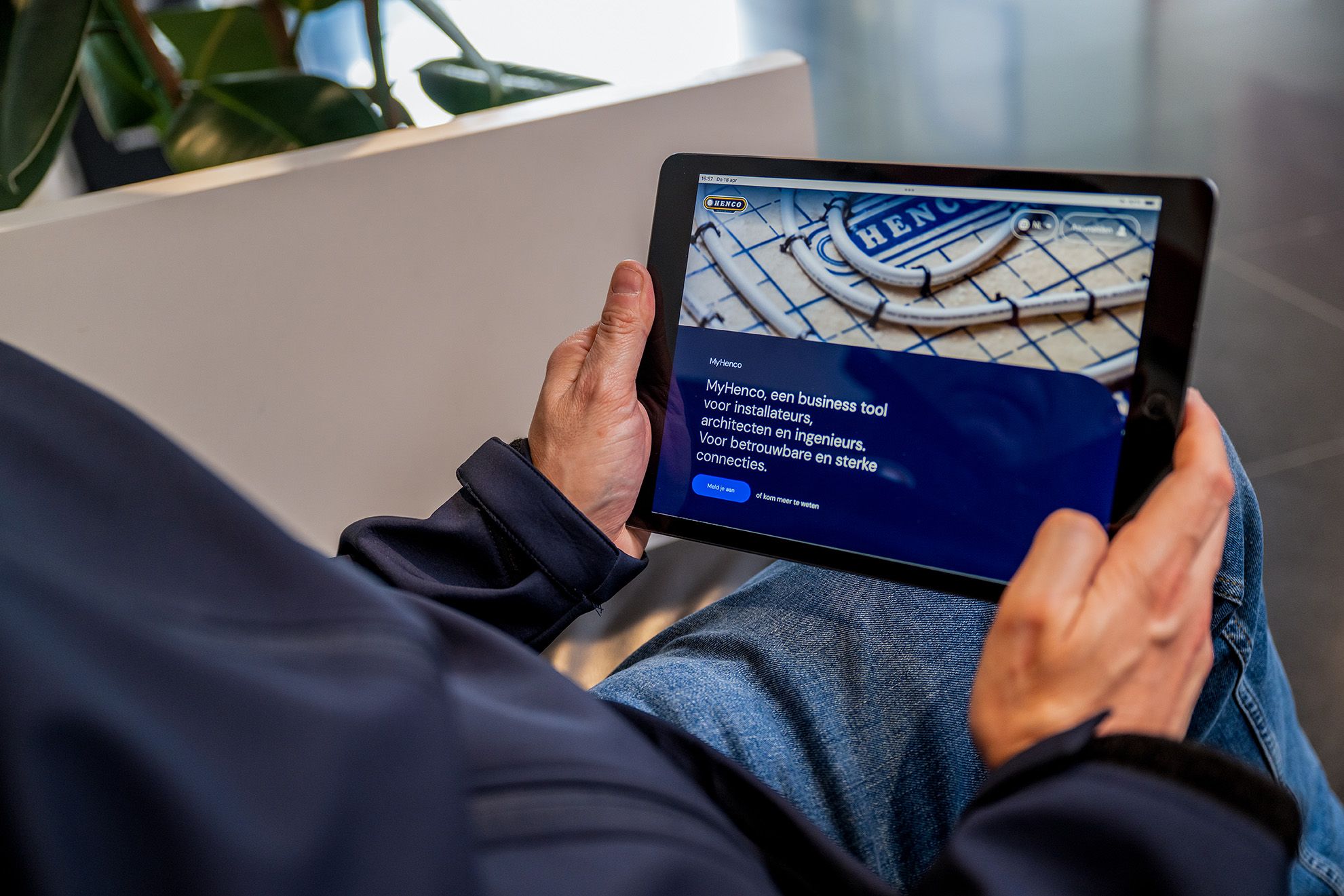Henco is the perfect fit
At Henco, we strive for perfection in every connection. As an international player with Belgian roots, we produce high-quality multilayer pipes, fittings and accessories. Worldwide, we offer total solutions that excel in quality, durability and ease of installation - for installers, architects and project developers.
Henco is the perfect fit - for every product, every service and every collaboration.
An innovative solution for every application
At Henco, you will find everything you need for your installation projects, from high-quality pipes and fittings to advanced underfloor heating systems.
We have a wide range of multilayer pipes, fittings, underfloor heating, tools and much more: Henco always has a solution! Henco has the products and expertise to help you whether you are working on a new construction project, renovation or repair.
Why is Henco the perfect fit?
30 years of experience
Since its founding in 1992, Henco has constantly strived for excellence in everything we do. And our long history attests to our commitment to craftsmanship, quality and reliability. With 30 years of experience, Henco guarantees unrivalled expertise and craftsmanship in the industry.
Innovation
Henco is a community of innovators who are passionate about delivering top-quality pipe systems. We always ensure our customers of the best solutions. The company started with the pioneering multilayer pipe and continues to provide innovative solutions for even the most challenging projects.
Robust durable products
Henco is known for its indestructible multilayer pipes, top-quality fittings and underfloor heating systems. With an unrivalled focus on durability and quality, Henco offers robust reliable products.
Diversity in solutions
Henco offers a wide range of pipes, fittings and accessories for every possible connection. Henco ensures its customers can find the right combination for every challenge so every project is a success.
Henco launches EPDs
As a construction partner, we share responsibility for the world of tomorrow. At Henco, we believe that sustainability starts with transparency. That’s why the environmental performance of our products is now available in official Environmental Product Declarations (EPDs).
In short, transparency, sustainability and efficiency go hand in hand at Henco. The EPDs are exclusively available via MyHenco, your central hub for technical info and project support.
MyHenco
MyHenco is the online platform tailored to installers and construction experts. MyHenco provides efficiency and time savings. Your indispensable 24/7 digital assistant for on-site, on the road or in the office.
Create your account on MyHenco now and get direct access to all product details, downloads, certificates and installation videos!
Discover our blogs




